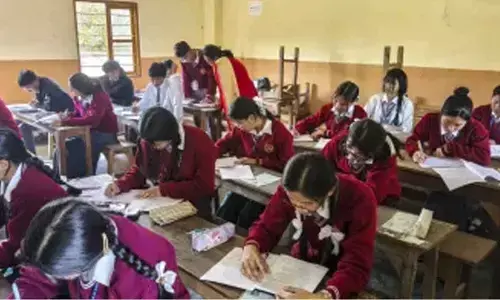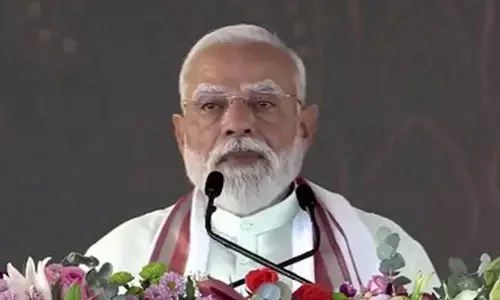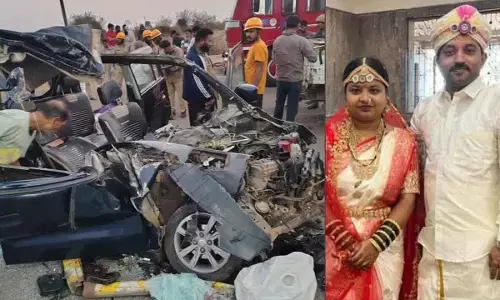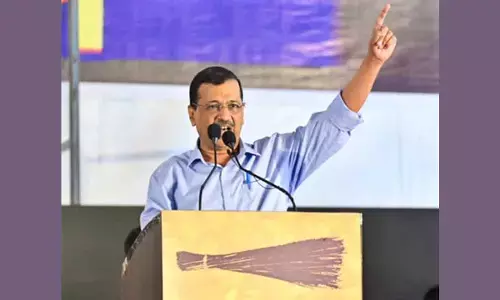No, not crimes of passion, but twisted masculinity
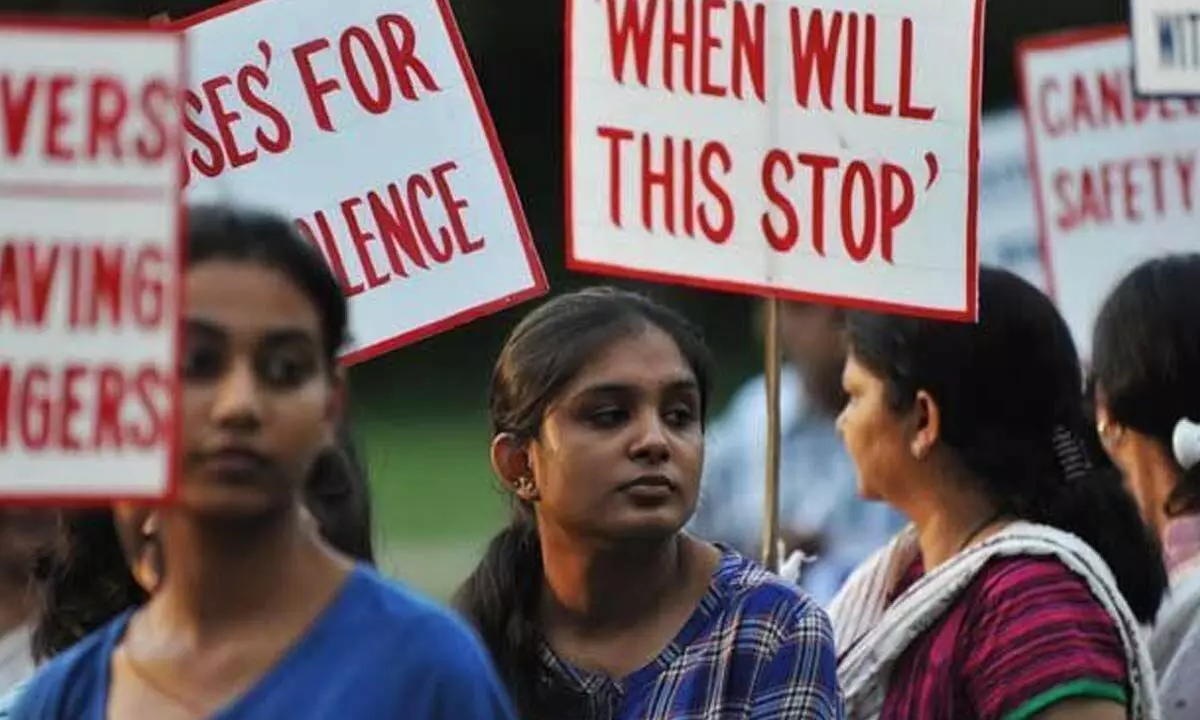
No, not crimes of passion, but twisted masculinity
The rate of crimes against women as proportion of all crimes rose by 15 per cent
Almost 15 years ago, in a residential society in Noida in the National Capital Region, a Class VIII boy invited seven-eight girls, all up to nine years of age, and took them to the rooftop of a block. There he gave them some toffees and asked them to dance as he played music on his music deck. When they danced, he set his father's video camera rolling.
When one of the girl's mothers found her daughter missing, she frantically searched around and another child told her about the 'Bhaiya' taking small girls with him. The distraught mother rushed up the floors and found the girls dancing and the Class VIII 'Bhaiya' recording them. Furious at the sight, she switched off the music and hit the boy's hand hard and severely reprimanded him.
After some time, the father of the Class VIII boy came to the girl's apartment and fought with her mother, saying there was nothing wrong in what his son was doing, and he would do it again because he was a boy. The shocked woman then spoke with the mother of other girls and all of them then met the boy's mother, who is a working professional. Sense prevailed and the same 'Bhaiya' is doing well in his personal life and profession.
An incident that could have been ignored, but it was dealt with seriously by the community in that residential society, and the boy and his father were sensitised about the act.
In one of his early Independence Day speeches from the ramparts of the Red Fort, Prime Minister Narendra Modi gave a message on sons and good parenting. He said that while the concern for girl children was understandable, parents must focus on what their sons are up to. "Even when they are only 12, young girls are always being asked so many questions by their parents, like 'Where are you off to?', 'Whom are you meeting?' But do these parents ask their sons where they are going? Women can progress only as fast as men can change. You can give women better protection, but real protection lies in how we bring up our sons."
The Prime Minister emphasised the importance of parenting sons, and he said, "This is where we are failing as a nation." Perhaps, the failure became horribly evident yet again when Sahil brutally murdered a 16-year-old girl in Delhi's Shahbad Dairy, and a father stabbed his daughter 25 times because he was reportedly upset over her sleeping on the terrace at night. The videos shook the nation because of the brutality involved of those who once 'loved'.
Boys will be boys ... that is the age-old notion. India's cultural obsession with sons is no hidden fact. There is a presumption that sons don't need much supervision and it is only girls who need to be inspected, supervised and guided. Even when parents realise that their sons may be straying, there is a kind of helplessness on how to tackle the matter. Sometimes, such instances are ignored with the comment that "they are boys and so it is so."
Globally, India has one of the largest numbers of young males. In 2020, the sex ratio of the total population in India was 108.18 males per 100 females. The percentage of the female population was 48.04 per cent, compared with 51.96 per cent males. Could the gender equation have a crucial bearing on violence against women?
The answer is somewhere in the National Crime Records Bureau (NCRB) data. In 2021, the data for the year being released in August 2022, 1,36,234 cases of violence against women were registered across the country, including cruelty by husbands or relatives, which formed the largest chunk of cases.
The rate of crimes against women as proportion of all crimes rose by 15 per cent in one year - from 56.5 per cent in 2020 to 64.5 per cent in 2021. The root of the problem could be that moral education for children is not given that much importance. Whether it is the home or schools, the formative years are vital, wherein sensitisation can be hammered in.
It is important to incorporate notions of respect for the different genders from a young age. Schools are essential to any child's development and ideas formed at this stage shape them as they grow up, so it is important that gender sensitisation happens at this age. Whether it is in behaviour or language used, the notion of zero tolerance for gender discrimination has to be drilled in at an early age.
"We must address issues of harassment, ill behaviour towards women," said Chief Justice of India D.Y. Chandrachud while speaking at a Women's Day Function organised by the Supreme Court's Gender Sensitisation and Internal Complaints Committee (GSICC) in March. In fact, Chief Justice Chandrachud admitted, according to media reports, that he had heard ghastly stories from women colleagues and friends regarding the behaviour of lawyers and even judges. He therefore stressed the need to ensure zero tolerance for inappropriate behaviour.
To ingrain appropriate behaviour and the right thought process, it is important to work on children from an early age. Their understanding of gender roles is influenced by their experiences within their own family, culture and lifestyle, and their environment. It is essential therefore to start from the home and school, and address the perception of masculinity.
Times are changing. More women than ever are proving their mettle. Addressing the age-old perceptions is the need of the hour. Girls are doing exceptionally well across sectors. This is the second year in a row when women have secured the top three positions in one of India's most prestigious competitive exams -- the UPSC Civil Services Exam. And similar results are also being reported from other professional exams.
It is important that sensitisation happens as gender roles in a patriarchal country like India are stereotypical and strongly ingrained. Change is also gradual. India needs to fix the twisted masculinity problems, and slowly and silently, it is happening. Hope is there.




